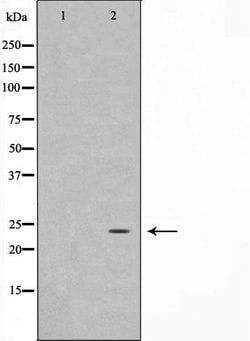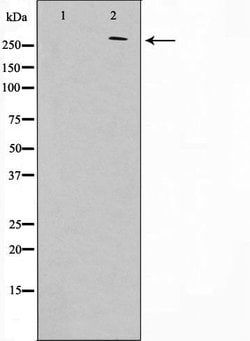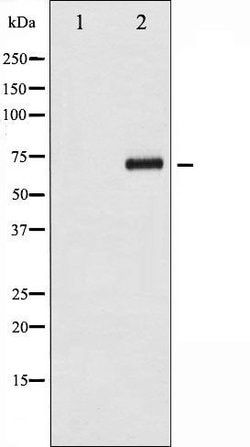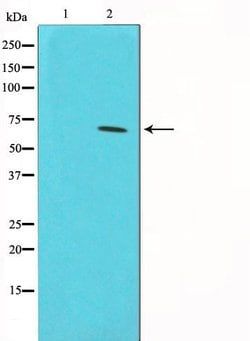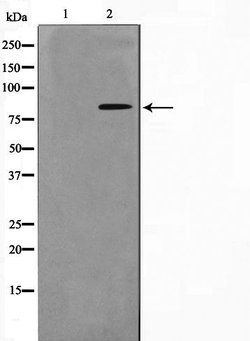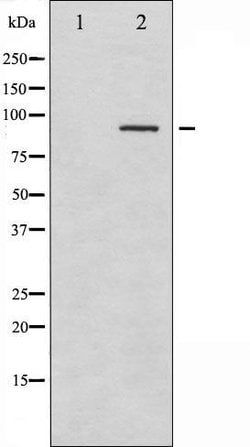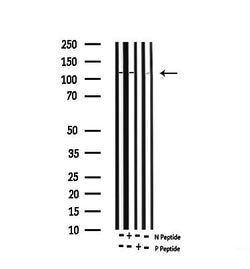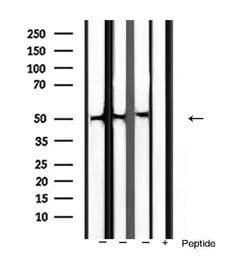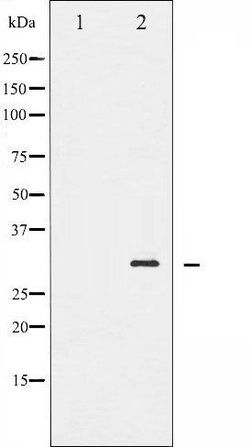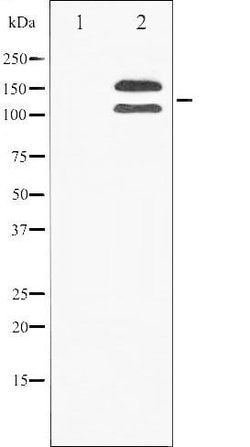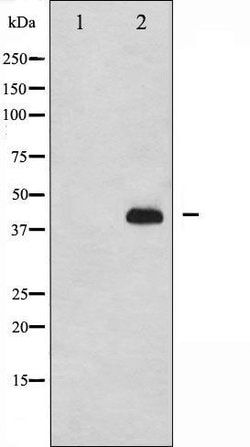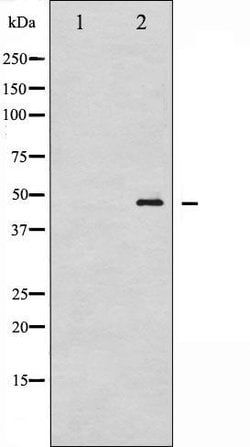Phospho-BCL-2 (Ser70) Polyclonal Antibody, Invitrogen™
Manufacturer: Thermo Scientific
Select a Size
| Pack Size | SKU | Availability | Price |
|---|---|---|---|
| Each | PIPA599356-Each | In Stock | ₹ 40,641.85 |
PIPA599356 - Each
In Stock
Quantity
1
Base Price: ₹ 40,641.85
GST (18%): ₹ 7,315.533
Total Price: ₹ 47,957.383
Antigen
Phospho-BCL-2 (Ser70)
Classification
Polyclonal
Conjugate
Unconjugated
Gene
Bcl2
Gene Alias
apoptosis regulator Bcl-2; AW986256; B cell leukemia/lymphoma 2; B cell lymphoma 2 associated oncogene; B-cell CLL/lymphoma 2; B-cell leukemia/lymphoma 2; Bcl 2; BCL2; bcl-2; BCL2 apoptosis regulator; Bcl-2 protein; BCL2, apoptosis regulator; Bcl2-like protein; C430015F12Rik; D630044D05Rik; D830018M01Rik; OTTHUMP00000163680; PPP1R50; protein phosphatase 1, regulatory subunit 50
Host Species
Rabbit
Purification Method
sequential chromatography
Regulatory Status
RUO
Gene ID (Entrez)
12043, 24224, 596
Content And Storage
-20°C
Form
Liquid
Applications
Immunocytochemistry, Immunohistochemistry (Paraffin), Immunoprecipitation, Western Blot
Concentration
1 mg/mL
Formulation
PBS with 50% glycerol and 0.02% sodium azide; pH 7.4
Gene Accession No.
P10415, P10417, P49950
Gene Symbols
Bcl2
Immunogen
A synthesized peptide derived from human BCL2(Accession P10415), corresponding to amino acid residues around phosphorylated Ser70.
Quantity
100 μL
Primary or Secondary
Primary
Target Species
Human, Mouse, Rat
Product Type
Antibody
Isotype
IgG
Description
- Antibody detects endogenous levels of Bcl-2 only when phosphorylated at Serine 70
- BCL-2 is a key regulator of apoptosis that functions to either inhibit or promote cell death
- The BCL-2 family members are also characterized by dimerizing to further modulate apoptosis
- Bag1, for example, has been found to form a heterodimer with BCL-2 resulting in the enhancement of the anti-apoptotic effect of BCL-2
- Bax and Bak have been shown to play a critical role in cytochrome c release from mitochondria and thus initiate apoptosis
- Bax exerts a pro-apoptotic rather than an anti-apoptotic effect on cells
- Constitutive expression of BCL2, such as in the case of translocation of BCL2 to Ig heavy chain locus, is thought to be the cause of follicular lymphoma
- In most follicular lymphomas, neoplastic germinal centers express high levels of BCL-2 alpha protein, whereas the normal or hyperplastic germinal centers are negative
- Two transcript variants of BCL-2, produced by alternate splicing, differ in their C-terminal ends
- The overexpression of BCL-2 has been linked to human cancers such as B-cell lymphoma and prostate cancer.
